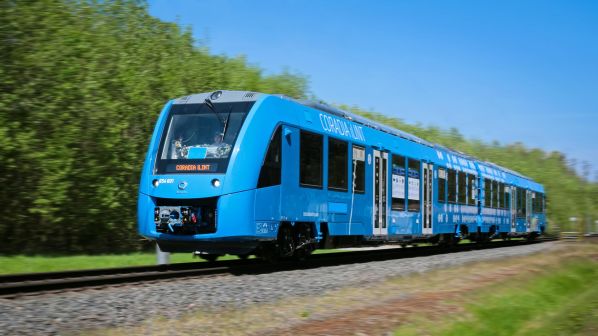A study of the cost-effectiveness of battery electric multiple units (BEMU) and hydrogen electric multiple units (HEMU) as alternatives to diesel found that BEMUs could be up to €59m (35%) less expensive to buy and operate compared with their hydrogen fuel cell equivalents, RailJournal.com reports.
In addition, the cost of energy and multiple replacement of fuel cells during a 30-year working life means that hydrogen trains are also more expensive to use than the diesel trains they would replace.
The report was issued by the German government-funded Association for Electrical, Electronic & Information Technologies (VDE) electrical standards and research group and was commissioned to advise Germany’s 16 federal states, which are responsible for regional operating tenders.
However, the study assumes that only ‘green’ hydrogen made by electrolysis using electricity from renewable sources will be used. In reality, the cheaper so-called ‘grey hydrogen,’ made as a by-product of the chemical and oil industry, will be used in some cases.
The study also assumes that hydrogen will be more expensive than electricity because electricity is needed to produce the hydrogen in the first place. This may not be true, as electricity used to produce hydrogen generated at night will likely be significantly cheaper due to much lower demand compared with the daytime electricity used when most electric regional trains operate.
The study was conducted using a regional network centred on Düren, North Rhine-Westphalia, as a case study, and calculated factors such as energy use, train speeds and timings.
Currently, this network is completely unelectrified except for around Düren station, however the study modelled its analysis on the planned condition of the network by 2026, where two of the three lines radiating from the town will be electrified.
The report also found that the adoption of BEMUs for regular operation is increasing rapidly, with 31.2 million km of German railway now exclusively contracted or tendered for BEMU operation. By contrast, hydrogen trains represent only 5.2 million km, limited to two contracts in Lower Saxony and Hessen which both use Alstom iLINT trains.
Germany has committed to removing diesel powered trains by 2050, with no DMUs expected to be ordered from 2025 onwards. However, 232.9 million km remain operated by DMUs.

